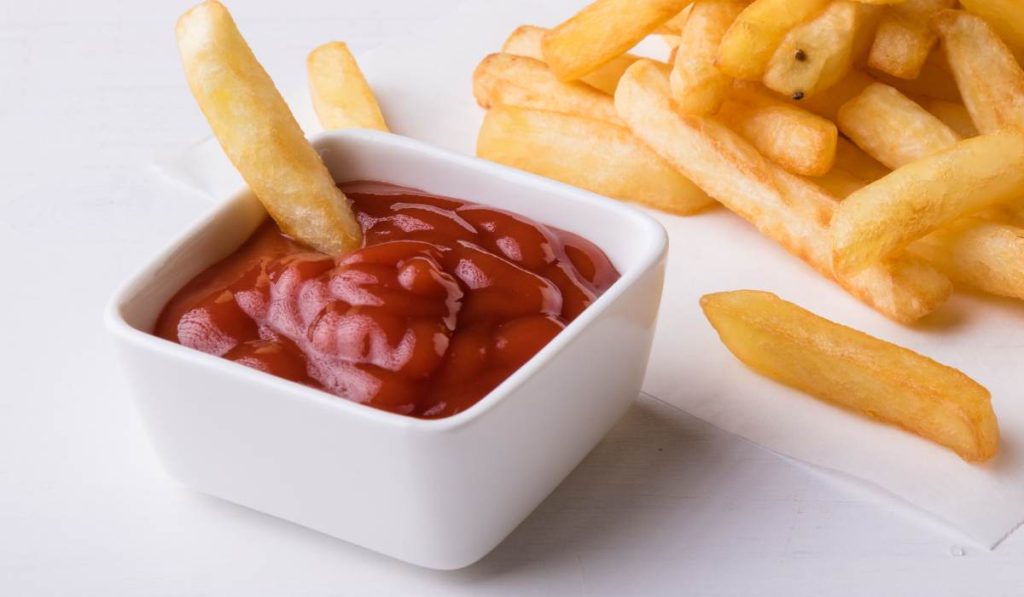Sugar is an essential part of every person’s everyday diet. But have you ever calculated how much sugar you consume each day? If the dessert is your favorite meal of the day, you might already know that it significantly increases your sugar intake. However, do you know how much it might be affecting your health? Do you wonder why you often feel tired or irritable for no specific reason? Well well well, the ice cream and sweets in your refrigerator might be responsible for that and many other health issues.
The results of eating too much sugar include the risk of developing diabetes, heart disease, and other chronic illnesses. Your body will give you some clear indications when you consume too much sugar. The constant reminder given by these warning signs can help you limit your sugar intake. The solution might be right there on your plate! Sugar consumption is increasing, and it can be tough to figure out how much is too much when it comes to your daily meals. Fortunately, we’re here to answer that today and to help you build a better lifestyle.
How Does Sugar Affect The Body?

Most of the sugar we consume is processed and absorbed in the small intestine. Larger molecules are broken down into the smaller sugars glucose, galactose, and sugar by specialized enzymes. When our body needs it, our body can turn the glycogen stored in our muscles and liver back into glucose. However, blood glucose level increases when glucose enters the bloodstream. Insulin is later released by the pancreas to help glucose reach its destination in the body. The cells can eventually develop in resistance to insulin. If we regularly consume substantial amounts of added sugar. Additionally, it is a risk factor for chronic diseases. Such as type 2 diabetes and systemic inflammatory conditions.
Our energy, weight, mood, and risk of disease are all impacted by consuming excessive amounts of sugar. Additionally, it can have an effect on our physical and mental health. We need to be careful about our sugar intake. If we want our bodies to be able to function as easily and normally as possible.
Signs You Are Eating Too Much Sugar
Brain Fog
Consuming sugar gives the brain a high surge and current feeling of a good chemical, which is dopamine. This shows why our body and Brain crave sweet or sugar bars at midnight more than any other healthy fruit or food item. This is because whole food items like vegetables and fruits don’t release the feeling of dopamine in the brain. Dopamine will released due to the ice cream you consume after dinner. This increases the problem of mental clarity, lack of focus, and concentration. Glucose is the primary source of fuel. But, an excess amount causes hyperglycemia and high blood levels of glucose, which causes brain fogging and loss of focus.
Bloating
When bacteria and yeast ferment our undigested food in the colon, they produce gases. While healthy bifidobacteria, which prefer vegetables, are believed to not cause any gas, harmful bacteria are known to particularly prefer digesting carbohydrates. An excessive amount of gas can cause bloating, flatulence, and post-meal discomfort.
Sleep Problems

If you’re facing difficulty falling asleep, you might want to think about what you’re eating.
A study found a strong connection between increased consumption of added sugars and more difficult sleeping conditions. The level of light, the temperature of the room, and glycemic control all influence our sleep cycles and how well we sleep. It is undoubtedly possible for someone who regularly consumes large amounts of added sugar to experience problems with their sleep pattern and quality.
Constant Cravings
Sugar and sweet items are very addictive in nature. They give us a quick feeling of temptation again and again. Sugar-containing food items make dopamine in the brain, which is similar to the effect of the drug (sugar drug). The nutrient called chromium help restore normal insulin function and substitutes, which contributes to the maintenance of normal level of blood glucose. It also reduces sugar, sweet, and carbohydrate cravings.
Well, it’s an unstoppable cycle to crave. The more you consume sugar, the more your brain will ask for it. The brain sees it as a reward. The best thing is you can restrict this craving by focusing on small meals, whole foods, and regularly eating healthy food.
Digestive Problem

There can be many reasons why you are experiencing stomach pain, cramps, or diarrhea. In this your doctor can help you identify the problem and source of your symptoms. One of the potential causes is eating too much sugar, a known irritant to the stomach.
Additionally, sugar can worsen digestive problems in people who already have underlying medical illnesses, including irritable bowel syndrome, ulcerative colitis, or who have had stomach surgery. Constipation can also be an issue if high-sugar diets take the place of fiber-rich foods like fruits, vegetables, and whole grains.
Low Energy
To produce energy in the body, glucose is very important. However, it’s necessary to maintain stable blood sugar levels. Instead of going through the ups and downs that come with craving sugary items and snacks. After consuming sugar, the pancreas releases insulin to help in the transfer of glucose to the cells. As the body needs additional sugar to restart the cycle after its supply is reduced, we notice a drop in energy. It is not difficult to think that the following sugar dip will be worse the higher the sugar peak.
Quick advice: If you are going on a date, ask your partner to skip dessert after a meal. The intake of sugar (especially in a male body) may impact a series of erections for the event.
You’re Constantly Hungry
Sugary foods are low in nutrients, which makes you feel hungry constantly. A lack of nutrients and fiber will force you to eat more to fill your stomach. Additionally, this results in weight gain. Additionally, you can occasionally feel a need to eat additional sugar.
Skin Acne or Premature Aging

Increased inflammation caused by sugar weakens the elastin and collagen in our skin, causing wrinkles and sagging. So, to take in and carry sugar to your liver, your body releases insulin from the pancreas when you consume sugar.
Consuming more food items that contain sugar than the body can handle can result in inflammation since the pancreas can only process so much sugar at once. Glycation of the skin is a connection of collagen fibers carried on by high blood sugar levels. This causes the skin to become less elastic, which causes wrinkles. The inflammatory response in your body can also cause acne, dermatitis, psoriasis, and rosacea.
High Blood Pressure
Have you ever noticed high blood pressure symptoms in your body after your efforts to reduce your salt intake? You could be restricting the incorrect element. It has been confirmed that a high-sugar diet lowers nitric oxide levels in your blood vessels, causing them to constrict rather than expand and improve blood flow.
High blood pressure and poor circulation are caused by this restriction. Poor blood circulation to the brain can impair cognitive function, resulting in memory loss and brain fog.
Joint Pain
Do you regularly experience aches and pains? The problem can be a high-sugar diet. According to research, eating foods with a lot of sugar can cause inflammation. It causes constant pain by releasing inflammatory proteins and hormones.
Inflammation is a common factor in joint and muscle discomfort. Even if joint discomfort comes on by any other accident or cause, it can get worse if you consume too much sugar.
Weight Gain

Glucose is a primary source of energy for the body, but if it is not used quickly, the body stores extra in the liver, muscles, or as fat around the middle. When we were hunter-gatherers, glucose storage functioned effectively, but now that there are few food shortages, we end up storing more glucose as fat in our midsections.
Cavity
Many people assume that it’s only the kids who get cavities and need to be kept away from sugary food. Well, that’s not the case as your teeth can get damaged by candies and chocolates at any age. The sugar that remains in your mouth after eating something sweet is a favorite food of the bacteria that cause cavities. Coating forms on your teeth as a result of the sugar molecules combining with saliva and germs in your mouth.
Plaque on your teeth can dissolve the protective layer of enamel, causing cavities and gum disease. One of the primary factors and aspects contributing to dental problems, including cavities and tooth decay in both adults and children today, is sugar consumption. However, limiting added sugars is a good idea if you have to eat a high-sugar dish. Rinse or wash your mouth out with water afterward or eat it with something like carrots or milk, which coats and protects the teeth.
Foods With More Sugar Than You Think
Flavored Yogurt

Yogurt seems to be on the good food list, right? Well, it is if you eat it plain and not those fancy and flavored ones. It also depends on the kind you choose. For example, varieties with fruit on the have mostly contain more added sugar. Look over the ingredients. Don’t buy yogurt if sugar is in the top 5 ingredients of it. Also, keep in mind that sugar can appear on ingredient lists under more than 60 different names, like cane juice and corn syrup.
Alternately, choose plain yogurt and add your own mix-ins. To add taste without additional sweets, try cinnamon, fresh fruit, pureed berries, dry applesauce, toasted and unsalted almonds, and seeds.
Salad Dressing
One of the main ways a salad can quickly transform from a healthy option to a diet crusher is with the addition of dressing. Well, the dressing usually includes a lot of sugar.
Each serving of some dressings can have up to 6 g of sugar. And it turns out that the kinds that are light or fat-free typically have the highest added sugar content. When manufacturers remove fat from their products, they typically compensate for the flavor by adding extra sugar.
Tomato Sauce

Despite being convenient, store-bought tomato sauces in jars can be hidden sources of sugar. Sugar is usually added to tomato sauces in order to reduce their acidic flavor and keep them fresher for longer.
Naturally occurring sugars are not the problem, yet again. The reasons for this include corn syrup and other added sweeteners. Additionally, certain sauces in jars contain up to 4 g in a half cup. Try buying a jar of plain diced tomatoes instead if you’re having problems finding sauces that are low in or free of added sugars. To quickly create a sauce free of sugar, just drain the fluids, purée, and add your own spices. You might like your homemade sauce better than any store-bought sauce.
Packed Fruit Juice
There is no doubt that not all fruit juices have the same qualities. For example, only some types of packed orange juices are made entirely from the actual fruit. Other beverages displaying the juice label are loaded with extra sugar and other ingredients.
Look for juices with the words “100% juice” or “no sugar added” on the label or those whose ingredient list just lists the juice from the fruit. Or, even better, choose the raw fruit and juice it yourself and of course, avoid the sugar.
Dried Fruit
Dried fruit often sounds much healthier than it actually is. For example, beyond the fruit’s organic sugars, a single handful of dried cranberries could contain up to 27 g of added sugar. In dried fruits that are naturally sour, sugar levels are typically higher.
Choose products with no added sugars and simply the fruit listed as an ingredient. Usually, these will have “no added” or “no extra sugar” on the front.
Ways To Reduce Sugar Consumption

Eat whole foods: Include more whole foods like fruits, vegetables, and grains in your diet. Along with meals high in fiber. Whole foods, or unprocessed foods, are helpful in giving your body a more reliable, controlled source of energy. Whole foods include things like fresh fruits and vegetables, nuts, eggs, and lentils.
Go out with a full stomach: If you go shopping on a stomach full of food. You will avoid eating sugary foods. If you do eat and consume sugary foods. Try to control the portion, be careful of toppings like ketchup and barbecue sauce. These are typically high in sugar and opt for lower sugar options like mustard or hot sauce.
Consume plenty of water: Sugar consumption makes your body more dehydrated. So, to keep it hydrated after sugar intake, make sure to drink plenty of water. A dehydrated body causes tiredness and lack of energy.
Exercise: Feeling low and depressed after a sugar crush? In either scenario, a good workout can help you get through an approaching sugar crash or help you shake off any general tiredness or fog you can be feeling.
FAQs [Frequently Asked Questions]
Q: Are sugar substitutes a healthier alternative?
A: Sugar substitutes, such as stevia or monk fruit, can be a useful option for people trying to cut calories. But it’s important to use them carefully and be aware of potential negative effects.
Q: How can I find hidden sugars in foods?
A: In ingredient labels, hidden sugars frequently go by multiple names. Look out for words like molasses, corn syrup, fructose, maltose, glucose, sucrose, and fructose. Understanding these terms and reading food labels carefully might help you spot products that have added sugars.
Q: What separates natural sugars from sugars that have been added?
A: Natural sugars are present in a wide variety of food items, including dairy, fruits, and vegetables. They are frequently referred to as healthy and contain additional advantageous elements. Sugars that have been added during processing or preparation but have no additional nutritional value are referred to as added sugars.
Q: What makes sugar risky when consumed in large quantities?
A: Sugar, particularly in its refined form, delivers unneeded calories with little nutritious value. It can lead and cause a variety of health problems when ingested in excess, including tooth decay and weight gain, to more serious disorders like type 2 diabetes and heart disease. Additionally, too much intake of sugar can lead to and cause inflammation in the body. Further, this is a risk factor for many chronic diseases.
Q: How can I decrease my craving for sugar?
A: Sugar cravings are frequently reduced with a combination of changes in diet and lifestyle. More protein and fiber in your diet will help you feel fuller for longer and less likely to go for sugary snacks. Additionally, maintain proper hydration, and get enough rest. Controlling stress is also helpful in reducing cravings.
Conclusion
Finally, it’s clear. High intake diet of sugar can lead to the loss of potassium, magnesium, and calcium in the body. This is the main reason for muscle contraction and relaxation. While it’s not simple and also realistic to avoid all added sugars from the diet. However, it’s always a good idea to read the labels and ingredient list of the product. Try to focus on unprocessed foods and whole fiber as much as possible, and make healthier food choices. We need to become more conscious and aware of our health. So, we can decide how much sugar we can eat in a day. By adopting a healthy lifestyle, like eating high-fiber food and exercising to become active. Be smart, and get ready to become healthier to achieve a better life.



